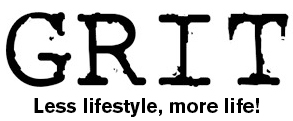
Editor

Modern society is teaching us to become more and more concerned about our bodies. When we are not bombarded with adverts telling us about products that hold the secret to the elusive “perfect body”, we are subjected to shocking news headlines informing us of the ever increasing levels of obesity and weight related problems.
I will be the first to admit that there is a certain amount of truth to all the above; taking care of our bodies is of paramount importance to our health. With the increasing prevalence of over-processed foods, lacking in nutrients and our collective lack of exercise, these important issues, need to be urgently addressed by society. Taking care of our bodies is a hugely important part of maintaining a healthy lifestyle, but too many people do not realise is that this is just one part.
Too often in our society, we feel that the key to a healthy lifestyle lies solely in taking care of our bodies. By completely ignoring the integral role that maintaining and nurturing our minds and spirits play, we prevent ourselves from having a truly healthy lifestyle. For these reasons, I have dedicated a large portion of my life to advocating the importance of ‘holistic health’, a lifestyle that addresses the health of the mind, body and spirit.
I start with the body, because living a full life without working on your body is akin to building a house without any foundations. The best and easiest way to take care of your body is to make structured exercise an essential part of your everyday life and to couple this with a healthy eating plan. Despite what many glossy magazines tell you, more often than not, trendy fad diets do not work and many people who see results with them find that they soon revert back to an unhealthy weight soon afterwards.
Maintaining a healthy body can be hard work but I can offer a few tips:
1. Try to drink at least one-and-a-half to two litres of water a day.
2. Breakfast is the most important meal of the day and should consist of protein, carbohydrates and good fats such as linseed or pumpkin-seed oil.
3. Eat four small meals a day, as opposed to one or two heavy meals.
4. Try to get around 40 minutes (inc. a 10 minute warm up) of aerobic exercise Most of you will agree that our everyday lifestyles have become too stressful. Not only does stress compromise how we live but it can have severe effects on our health and happiness.
However, I believe that by fully understanding what is going on inside your head, you can effectively reduce and manage your everyday stress levels. One way to effectively manage stress is to undertake some light aerobic exercises which help to relieve stress by pumping greater levels of oxygen around the body.
Alternatively, deep breathing and meditation are also a fantastic way of alleviating stress. By deep breathing, I mean breathing deep into the lower abdomen so that it extends for a maximum of 10 seconds and exhaled for the same amount of time. Deep breathing works well for any time when you feel the need to clear your head, and especially when used as a precursor to meditation.
Spiritual health and our awareness of it, is something that is almost completely non-existent in contemporary Western society. Many Eastern cultures, however, have always taken a more positive view towards holistic health. In the Hindu faith the medical and spiritual system views the body as a network of structures called ‘Chakras’. In Chinese Taoism, the integration of the mind, soul, body and environment is central to cultural life. The advantages of these spiritual systems, and taking care of one’s spiritual wellbeing in general, are that they force us to look beyond the surface to see how our whole system works, in order to correct any natural or environment imbalances and to maintain positive flows of energy throughout our body.
It is through establishing unity between the three precepts of mind, body and spirit that one can truly bring a positive change in health, outlook, and ultimately, lifestyle.
For more information visit: www.jacquelineharvey.co.uk

Most of us are affected by stress. Work, life, home, children, partners… stress is becoming something we accept as part of our daily lives.
Sometimes though, our reactions are disproportionate or inappropriate to the situation and this is where the impala come in.
The impala (an African antelope) spends most of their time on red alert, running for their lives and trying not to be eaten by leopards! But they don’t appear to be traumatised. We don’t we find impala off their food, losing sleep and harbouring a deep sense of injustice!
It turns out that impala know they are prey and that the perusing leopard knows it’s a predator. So, they just get on with it… there is no inner conflict.
The human predicament is that we can be both predator or prey and life experiences can make us lean more in one direction than the other. In a stressful situation, your brain has to decide in an instant, whether it’s safer for you to be predator or prey and then you behave accordingly.
For example if as a child, you stood up to the school bully and it worked for you, part of your nervous system will remember this as a good strategy. However, if when standing up to the bully, you were punched in the face, your body will begin to record standing up for yourself as unwise. This is further complicated by the fact that your body doesn’t make its decisions on events but on how you feel. So if you feel the same as you did when you were at school with the bully, part of you will want to behave the way you did then – despite the strategies you’ve learnt since. So you have a choice.
If you stood up for yourself, there’ll be part of you saying “you shouldn’t have been so assertive, you should have hidden under the table as I told you to, because there will be consequences. If you didn’t stand up for yourself, the other part will berate you as a wimp or a total loser. And be angry at all the times you have let people walk over you.
If you were brought up to express your anger in a healthy and constructive way, this may not be a problem but if anger for you is something to be scared of, something which you should never feel, or something which has not brought you a good outcome in the past, then your defences will be up. The problem here is that suppressed emotions don’t disappear. They seek to express themselves in some other way, often inappropriately.
If you recognise this, ask yourself have I felt like this before? When was the first time? Reassure yourself that was then and this is now and the two events and separate. And that you are safe. Some people can easily put boundaries like these around their emotions and manage their stress levels. For others unfortunately, negative childhood experiences are too ingrained and they find themselves needing to work on the unresolved.
It’s important to maximise the quality of your life. To have some level of control over how you react to situations, to be aware of how you feel and why, and to see the connection between how you behave as an adult and what you experienced as a child. Understanding your actions and responses and learning new strategies for dealing with stress and conflict can make a very big difference to you and to those around you.
For more information contact nayna@nkbodypsychotherapy.com or visit www.nkbodypsychotherapy.com

Imagine this…
You’re going to a party with your partner. You have never been to this person’s house before and you have never met them either. You’re excited! As you turn the corner into the street, you wonder with anticipation which house it is. You look around all the homes, each in pretty good repair, and sigh with relief that you’re ‘in good company’. Then your partner pulls into the driveway of of a run-down, over-grown derelect . You’re heart sinks.
If this is what the outside of the house looks like, then what does the inside look like? You’re now beginning to feel a little anxious, wondering why your partner accepted an invitation to a party in this house! Now you’re wondering what kind of people live inside. What do they do with their time, if not taking care of their home? What do they spend their money on? Do they even care?! the other guests? Will they be the kind of people that will make you laugh and that you have something in common with?
In those few minutes, you have judged the owners of that house based purely on the outside. You have read the book by just looking at its cover.
And to be fair, that’s ok. In fact, it’s actually perfectly normal and we all do it. We judge on appearance alone in as quickly as 1/10th of a second. And first impressions sticks. After that Iit takes significant time and energy for a person to change their mind, be that a positive or negative opinion. So what does this all have to do with your Mind, Body and Soul?
Let’s look first at the Mind:
• What we ‘think’ during our private conversations is wholey ours.
• No one else has access to our thoughts
• Others can only interpret what we consciously or unconsciously communicate.
Now, the Body:
• Our bodies are where we spend all our time, it’s our ‘home’.
• How we think about our body, our ‘home’, will be communicated, consciously or unconsciously, to those around us.
Finally, the Soul:
This is a tricky one as it’s rooted in many diverse meanings, most notably in linguistics, religions, philosophy, science and parapsychology. So, I will only simply define what ‘Soul’ is means to me.
Soul is our journey through this life. If we sense pain along our journey, we know we need to change something to get us back on the right path. If we feel joy, we are on the right path.
So, how does this relate to the house party story above?
Our Mind has internal conversations about ourselves, negative or positive, and tells Body (home). Body gets dressed according to the ‘conversation’. Soul (the journey) is either a good or a bad experience. You’re appearance, how you dress, is the outside of your home and is communicating how you feel about your journey through life. Your message is out there. Good or bad.
Put yourself in other people’s shoes. What message are they getting about you? Do they feel that an invitation from you is the hottest in town?
Get it right, and…
• You will be seen.
• You will be heard.
• You will be the hostess with the mostess (at home AND in your business).
IF YOU…
• Dress the outside of your body (home) well.
• Look fun and inviting.
• Know what path you’re on.
Make your journey a great one. And invite EVERYONE along for the ride!
For more information please visit: www.yourstylesister.com (new website coming soon, launching end of July)

Did you know simply even thinking generous thoughts may help boost your immune system? In fact studies have shown that when people watched a film on Mother Teresa tending to orphans or ticked the list of organisations they would want to donate to this elevated levels of antibodies – suggesting a reduction of the risk of heart attack, lower depression linked to the reduction of cortisol/anxiety and an overall increased healthy state of wellbeing.1
Many examples of such philanthropy come straight from the heart, from the soul. People contribute their time and effort well before money is exchanged or offered – working at a care home, looking after the elderly or tending to children with a disability.
The intention to get involved, to make a positive difference to someone’s life is a thought that emanates from one’s consciousness and self-introspection – a stirring of the soul. Why are so many people starving? Why are women continuing to be victims of sexual violence, acid attacks, forced marriages, foeticide and infanticide? Why do pitiful attitudes towards children with a disability exist? We have all at some stage struggled with these questions, and even felt disillusioned, however the passion to make a difference, seek justice, believe in the greater good and the intention to help the disadvantaged is where it inevitably starts from.
For me it started at a young age when my family donated kidney transplant machines to a speciality hospital for the free treatment of the poor and when we set up a Punjabi canteen to feed the poor in South India. In my case the seeds of social impact were sown early but somewhere along the way such thinking was de-prioritised subconsciously whilst proactively building my professional career. In the last few years though, having left the corporate world and embarked on an entrepreneurial career, I’ve been researching charities, trusts and mission-based organisations – basically searching for something more meaningful, more personal, more impactful. For me that search ended with Milaap.
“Give a man a fish, and you feed him for a day. Teach a man how to fish, and you feed him for a lifetime”, sums up Milaap’s raison d’etre. And mine. It struck a deep chord with me. Milaap is not a charity – it is a social enterprise that provides short-term microloans between 8%-13% (50% cheaper than established microcredit organisations). This allows the working poor of India a realistic chance at a successful and sustainable future for causes as diverse as water, energy, sanitation and education. You lend a little but you literally end up changing a lot.
My first on-line campaign to raise funds to build five toilets in rural Tamil Nadu was an instant success when it received its full funding within two hours. It confirmed my faith that despite ‘charity fatigue’ there are many in society who are keen to assist especially when they can see how their money impacts an individual borrower directly and changes their life forever. I wanted to be closer to this action and went to see for myself the progress that this loan could make on someone’s life.
Another passion project for me, as for many women I’m sure, is women empowerment and independence. In September 2014 I will be fundraising for ex-Devadasis (meaning “servant of God”). There are an estimated 250,000 girls and women in South West India who over the years have been forced into prostitution to survive. Mahananda, a 34-year old single mother, has started her own tailoring business that will enable her two daughters to complete their education and embark on their own careers. Becoming an entrepreneur for her means offering her daughters a better future, integrating herself back into society, and eventually it means she and her daughters have broken free of the vicious cycle of prostitution that most Devadasis are doomed to.
Feeling good from doing good is a very private and intimate emotion as many will attest. Giving yourself, your energy, sharing a part of your soul captures the spirit of philanthrophy because it is done with no returns, no expectation of compensation or awards. ‘Hands that help are holier than lips that pray’ and that will be, when all is said and done, our truest legacy as human beings.
For more information visit: www.milaap.org or twitter @premilapuri Reference: 1. http://www.oprah.com/health/Scientific-Proof-That-Charitable-Giving-Improves-Your-Health_

When it comes to Mind, Body and Soul, I have over the years come to see, experience and realise how interconnected these three areas are. How your mindset affects your body or posture and how this inevitably affects your wellbeing and the way in which you express yourself and interrelate with others.
Communication has always been my passion whether, as an actress, allowing the inner life of the character to be seen, embracing my own physical and vocal limitations and power or the work I do with actors and business individuals to improve their specific communication problems.
On reflection, I realise that I have never really dealt with an isolated communication issue but have always seen it as part of the whole person – the fears that hold them back, the challenges they face and the dreams they aspire to achieve
This mind, body, soul holistic approach of working on communication skills involves exploring the mindset of the client – what creates the fear of public speaking, the hesitation when presenting, the concern about speaking up? What is it that stops the client confidently influencing, asserting themselves or strongly leading others? I am always curious to know what the conditioned thinking patterns and belief structures are behind each limiting thought. Is it the fear of being judged, evaluated or being seen as a fraud?
How does this mindset affect how people use their bodies – do they slouch, is their body language closed or do they make little to no eye contact with others?
Ultimately how does it affect their confidence level, inner calm or oneness with themselves?
Research conducted by Heather Jackson, Founder and Chief Executive of The Women’s Business Forum, states that 92 per cent of women regard “lack of confidence” rather than concrete obstacles as the greatest impediment to their promotion. This lack of confidence affects how women communicate, ask or in many cases don’t ask for pay rises, negotiate deals or hold their authority when communicating or leading others.
Many women I work with have often confessed that they are afraid of being assertive through their body and voice because they fear they will be seen as aggressive, bossy or even bitchy. This means they tend to adopt more passive behaviours which negates their authority, personal power and gravitas when speaking.
Here are three areas on mind, body and soul you can be aware of:
1) Develop a positive mindset and strong self –belief.
2) Connect to the full length and width of your body. Stand tall and inhabit your space with confidence.
3) Speak not just from your head but from your heart with passion, power and authenticity. These three core aspects are what I focus on clients achieving when working on their communication skills. And it makes all the difference.
I am grateful for all the discussions, increasing female role models, trainings and networking groups like WE that provide support and awareness on how women can think, grow and connect with what is truly alive, powerful and authentic in them.
For more information visit: www.lisaakesson.com

We are all striving to succeed in life whether it is to improve our own lives or the lives of others. For some the drive to succeed is stronger, with a clear worthwhile purpose and that strength comes from a deep place within. In order to understand the deeper part of our self it is important to connect to our own body, mind and soul.
Through my personal experience I have learnt that taking care of your body, through physical forms such as yoga and taking care of your mind, through meditation allow you to feel more connected to your soul. When you feel connected to your soul you have a greater understanding of yourself, your potential and your purpose in life which gives you a deep sense of true happiness.
In order to achieve success in life whether you are a teacher, doctor, lawyer, builder or mechanic there is one thing that will help you and that is good health. We often take our health for granted and only when we fall ill do we realise that without our health we can’t fulfil our goals and dreams.
Therefore it is important, and in fact vital, for your greater success to take care of your body. Whether it is a couple of hours at the gym, a few laps of swimming or a yoga class, taking part in a regular exercise routine along with a healthy diet will help you to feel fit and well so you have the energy and physical strength to undertake all the activities in your daily life.
Your mind like your body is another tool which needs to be taken care of in order to allow you to think to your highest potential. Every thought and decision you make in your business or career will lead you to success or failure. Therefore practicing meditation is like exercising the mind and a regular practice will develop your mental strength and stamina.
Meditation works on clearing out your thoughts and creating a space of silence and peace within your mind. The practice of meditation techniques will help to remove thoughts which create clutter or a cloudy mind such as irrelevant mental chatter, worry and anxiety. This will leave the mind in a state of peace which is just one aspect of your higher self/ your soul.
If you develop a regular practice of meditation you will strengthen this relationship to your higher self/ your soul. Over time this will become more noticeable as you start to become more responsive to your intuition and guided thoughts which are now more able to be heard over the chattering mind!
This will then allow you to start living a life of genuine truth, happiness and success in your business, career, relationships and all other areas of your life!
For more information visit: www.yogawithjaina.com

As a woman on the path to success we expect to feel a sense of achievement when we reach the top of where we want to be. How does success look from up there? Will the world and people around you look more beautiful? Will the journey to the top be pleasant and memorable?
For many women whom I have met their journey to success has certainly not been an easy one. It is not always a journey of mutual support, uplift and friendliness. There are many challenges, not just due to gender bias, but also due to an unhealthy competition and jealousy from other women themselves! This kind of journey can be very stressful and takes its toll on our body and mind.
Sri Sri Ravi Shankar (Founder of the Art of Living) says that one who manages all of the challenges that life presents before them is successful. However, what skills do we need to be able to do this and succeed? Here are six suggestions:
• Commitment: One failure can often lead to another later success. So, do not be deterred by failures.
• Time: It is not sufficient to invest money to nurture or develop anything.You have to give your personal time and attention.
• Setting an example: A successful woman doesn’t just show you the way; she walks with you.
• Team work: Make others feel involved. Inspire participation and contribution.
• Silence: Nurture quietude and calmness.
• Reflection: Sit quietly at the end of the day, looking back at all the day’s activities, and see where you have made a difference. Reminding ourselves of our success, can inspire us to do more.
A woman has to balance many things on the road to success; her family, relationships, work, interests and more. However, once you realise that you are multi-faceted and multi-dimensional, you can multi-task. This realisation can only comes when you are in a calm and serene state of mind, which is can be achieved through meditation.
The meditative woman is a successful one. Belonging, commitment, feeling connected – all of these qualities are a by-product of meditation. When you meditate, the task that took you four hours to complete earlier can gets done in two Meditation enables you to give yourself prime-time, to relax and realise your potential to do better. Otherwise you limit your capabilities.
Sri Sri often says, “Success means strength, an unshakeable smile that nobody can take away and a courage that does not diminish. It does not mean having a big bank balance. There are some very rich people who do not have strength of character. They don’t have a sense of belongingness or love. They are unable to appreciate the subtleness of life.”
True success is when it extends to both your material and inner world. Take time to enjoy the little things in your life. Observe the glistening dewdrops in the grass listen to birds chirping in your garden.
When did you last enjoy the craftsmanship or design of your furniture or carpet, the beautiful colours in a painting, make a new salad dressing, and even just experiment with your sandwich? This is the sign of a truely successful woman – living every moment to the fullest.
I have always believed that a woman is the heart of the family – she keeps everyone together. A woman is also the heart of our society – and when you empower women to succeed, you are enabling society to prosper.
For more information please visit: www.artofliving.org

I used to think wellbeing meant just taking vitamins and eating a good diet. I was wrong.
My passion for wellbeing started in my late teens when I was told I was anaemic. I started taking vitamins and doing all sorts of research into the best supplement to take, reading product reviews and testimonials on the internet and other resources.
I became fascinated with particular diets, avoiding certain types of food and spending lots of money on supplements in the quest for good health. Gradually I realised that there were people around me who didn’t do any of these things. They ate as they pleased and some never took vitamins but they still looked and felt healthy. I just couldn’t understand this.
I then came across Reiki (a energy healing form of alternative medicine) and learnt about how physical symptoms and our outer world are a reflection of what is going on in our internal world. I learnt that we are not just physical bodies but are emotional, mental and spiritual bodies too and that everything starts off at an energetic level which eventually manifests as a physical imbalance.
An Holistic approach is paramount to obtaining wellbeing. And Reiki healing addresses the person as a whole, not just the symptom. it goes into the deepest aspects of a person’s being where the origins of illness/imbalance lie. It works wherever it is needed the most; releasing blocked energies and working to create a state of balance. Moving into a state of mind, body and spirit balance inevitably means the resolution of health problems, a shift towards a more positive attitude and a realisation of one’s true values and priorities in life.
Those people who ate without a variety of restrictions and still appeared healthy were actually just really in touch with how they felt and what they thought. They were generally happy, positive people.
I had studied two degrees and become a solicitor but I had never really stopped. I realised that I had never given myself proper attention I and really acknowledged what was going on in my inside world.
Things happen to us every day. We think and feel things but just put them aside because we feel that this is the best way to deal with life. The reality is that when we do this we actually push these feelings and thoughts back into our subconscious where they continue to exist. We then end up developing thoughts and behavioural patterns that don’t serve us.
Your wellbeing starts from within you.
The longer unserving feelings and thoughts stay within you, the further you will stray from wellbeing; they may eventually manifest into physical imbalances resulting in health concerns. And it won’t matter what supplements and diet you’re on if you don’t address the root cause.
My Wellbeing Tips
Address your inner world – find out what’s going on inside you, get counselling, life coaching, NLP or whatever helps you discover your internal world.
Invest in yourself – personal growth/self-development training is one of the best investments a person came make for their complete wellbeing. It helps you to realise your fullest potential and address inhibitions that are holding you back.
Keep a journal – this can be profoundly effective. Whenever you feel something is on your mind just start writing (handwriting not typing) This technique connects you to your subconscious and helps reveal what is going on emotionally.
Look at your environment – Our wellbeing is directly related to how we deal with environmental stress which some say have become severely compromised due to being surrounded by electronic gadgets (computer, mobiles, TVs) and WiFi. These constantly emit ‘positive ions’ (also known as electromagnetic radiation/smog). Research has shown excessive exposure to positive ions may be harmful to our health leading to physical and emotional deterioration such as moodiness, irrational anger, tension, insomnia, fatigue, depression, headaches and immune system conditions. (Ref : The Ion Miracle: The effects of negative ions on physical and mental well-being by Jean-Yves Côté)
However ‘negative ions’ are in excess in natural environments such as forests, near waterfalls and beaches. This has the opposite effect of positive ions and uplifts us physically, mentally and emotionally and is why people feel better in these surroundings. Research has shown that it may even help people with depression, blood pressure problems, hayfever, asthma, stress and insomnia (Ref: The Ion Miracle: The effects of negative ions on physical and mental well-being by Jean-Yves Côté)
What is Nikken Nature Technology?
Nature is a profound healer and Nikken have used nature to inspire their wellbeing service so that we can use it in our daily lives without having to make lifestyle changes. It incorporates negative ions, the Sun’s far infrared energy and the Earth’s magnetic energy, to help us restore and repair ourselves on all levels (emotionally, mentally and physically).
For more information contact : 07957 970 243
info@holistichealth-research.com
www.nikkenwellbeing.co.uk/info/SukhiBhoga

